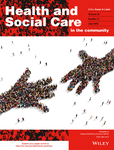Australian general practitioner attitudes to residential aged care facility visiting
Abstract
Demographic trends suggest that the sustainability of the general practitioner (GP) Residential Aged Care Facility (RACF) workforce, worldwide and in Australia, is under threat, compromising the ongoing care of chronically ill RACF residents. It is therefore important to ascertain current GP attitudes towards this work, to better understand and hypothesise means of reversing this trend. To this end, during 2014 the views of 26 GPs and GP Registrars working in rural and regional New South Wales, Australia, were captured during focus group discussions and one-on-one interviews. Analysis of the qualitative date revealed that GP attitudes towards RACF visiting fell into five key themes: pleasure, duty, remuneration and logistics, hesitation, and frustration. The data also revealed that the overriding emotion GPs felt about RACF visitation was frustration with the avoidable delays and inefficiencies associated with the work. Despite the pleasure GPs derived from their work in RACFs and their sense of obligation to be involved, their hesitation and frustration was compounded by the work's perceived poor remuneration. This research suggests that the barriers to GP participation in RACF visiting were managerial rather than attitudinal, and that a strategic focus upon improving administrative and logistical support is needed.
CONFLICTS OF INTEREST
The authors confirm that no conflicts of interest exist which could inappropriately influence this work.




